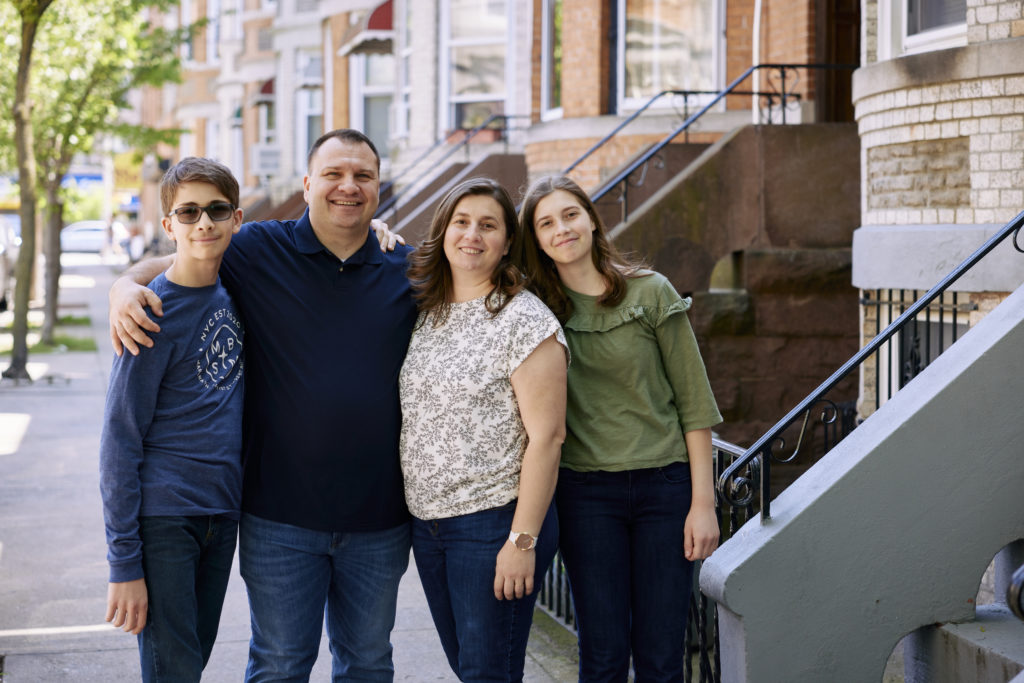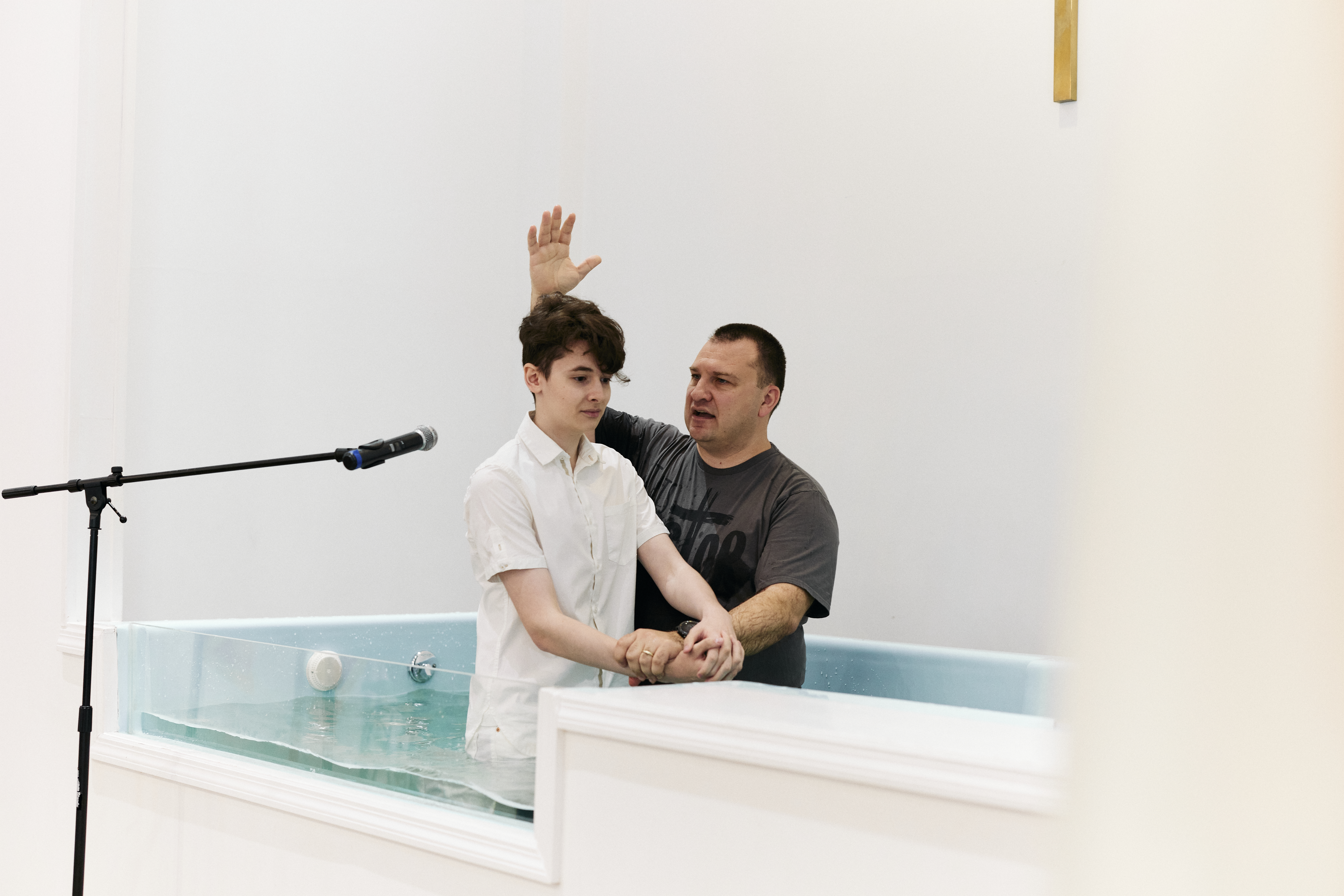
NEW YORK CITY (BP) — In some ways, New York City’s Maranatha Baptist Church wasn’t much different from thousands of other churches throughout North America struggling to engage its community.
Planted 25 years ago to reach the growing Romanian population in the surrounding Ridgewood neighborhood, Maranatha initially reached their Romanian neighbors faithfully, growing steadily along the way.
But as the years passed, the community changed. With Romania’s entrance into the European Union in 2007, fewer Romanians were immigrating to the Ridgewood neighborhood. Instead, the neighborhood grew more diverse, welcoming people from across Europe. Roughly half of the neighborhood population speaks a language other than English in their homes.

When the Romanian-speaking Maranatha Baptist no longer spoke the language of the majority of their neighbors, they lost their ability to engage people with the gospel. Most of the remaining members didn’t live in the neighborhood. It seemed to be only a matter of time before the church folded.
That’s when the church called Romanian Pastor Emanuel Grozea as the next pastor.
“When I came here, I did a quick analysis of where this church was and where it was heading,” said Grozea, who is a North American Mission Board missionary. “The church was having a beautiful fellowship and honoring the Lord, but this church was in trouble. I noticed it right off the bat. I started praying and asking the Lord for a vision.”

As Grozea prayed for God’s vision for the church, the gospel came into clear focus. The gospel is for everyone, he realized. Isaiah 56:7, which Jesus quoted when he cleansed the Temple in the Gospels, came to mind: “My house will be called a house of prayer for all nations” (CSB).
Instead of an intense focus on reaching Romanians, God’s vision for Grozea was to replant the church as a place of worship for all nations. Grozea realized it would be tough for the church to reach the diverse population around them. Every aspect of the church would be affected—from its leadership, to membership, to mobilizing volunteers.
But most of all, the church’s dominant language would need to change. The church worships in English but hosts weekly Bible studies in the various languages represented in the church.
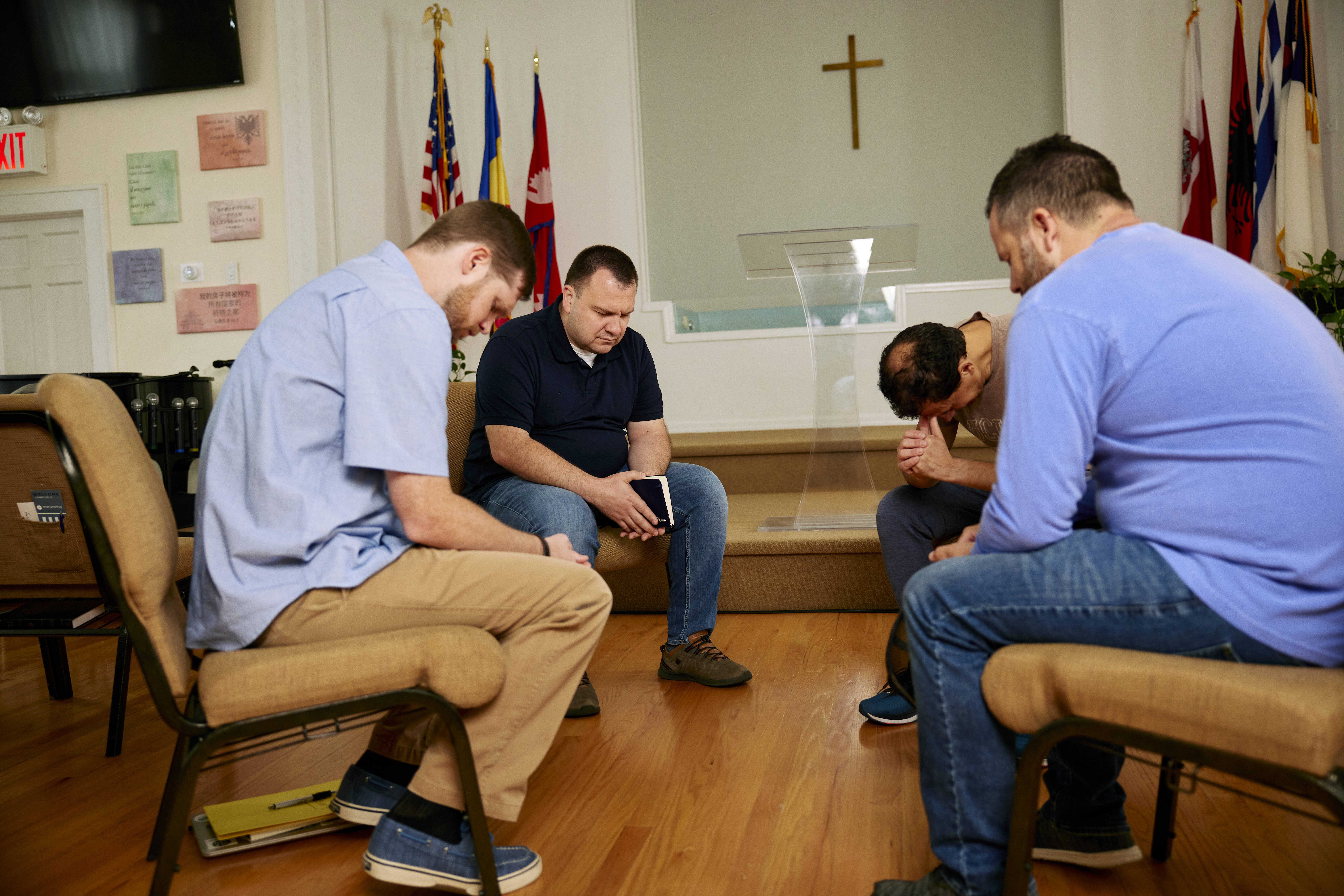
Grozea also centered Maranatha’s ministry around four values: training in Scripture, reaching the community, engaging the family, and equipping the believer.
“These [values] respond to a community that above all needs Christ,” Grozea said. “This is why we’re equipping believers and sending them out to share. As our community is religious but, more often than not, doesn’t know God, we’re training in the Scriptures, offering a place where people can clarify their beliefs and find Christ. We’re intentional about reaching our community at any stage they may be, through activities ranging from prayer-walking to social engagement to evangelistic campaigns. But given that our community is very family-oriented, we’re engaging the family with outreach strategies and ministries that serve the families in our neighborhood.”
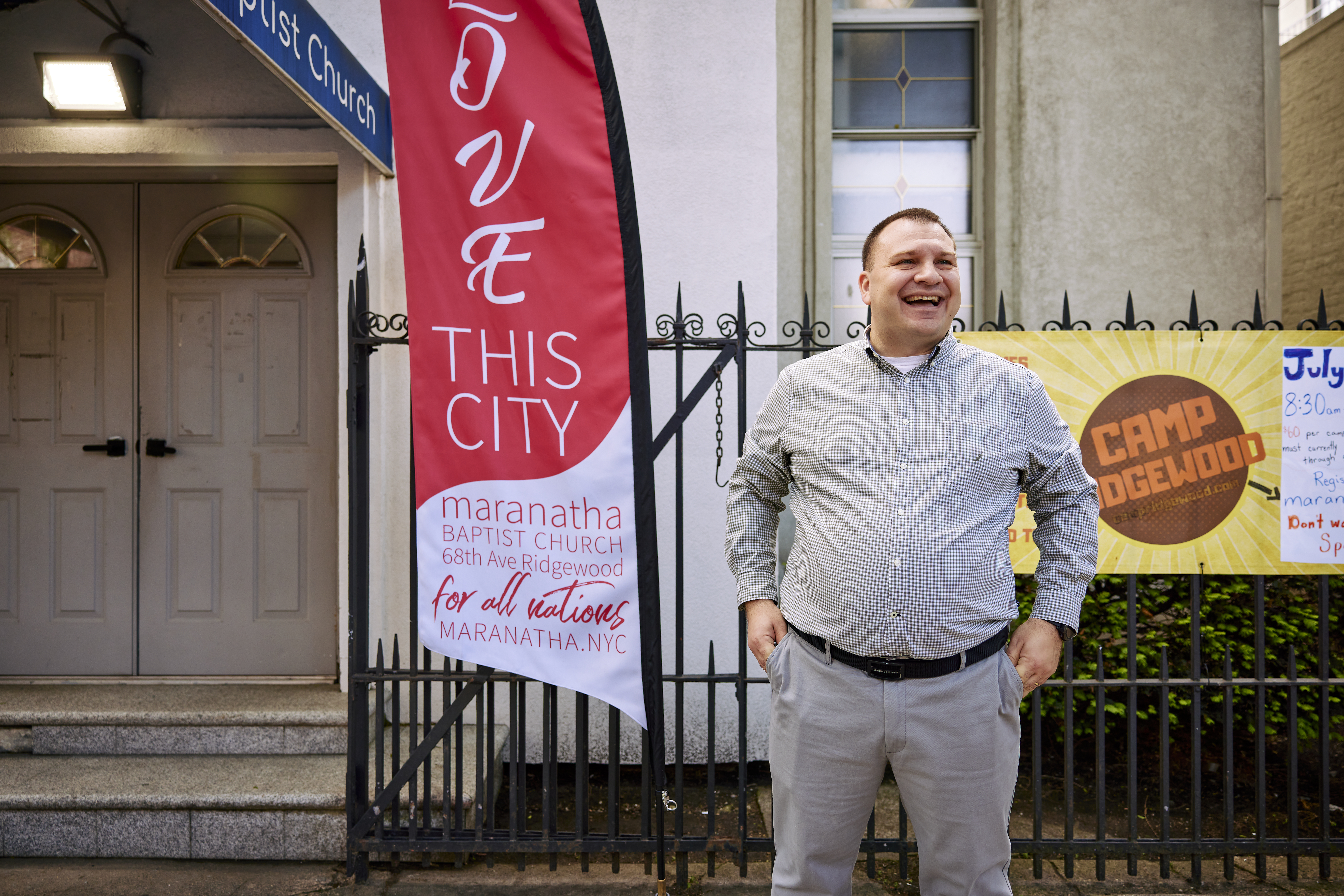
As 2020 began, the church planned to debut the new replanted church with a fresh vision to reach the nations within the neighborhood. Then COVID-19 hit. But Grozea and his core team understood God still had control. They set aside their plans and began to serve the community with fervor, starting a food ministry that fed 300-plus people every week and ministering to local first responders.
During the particularly difficult time of social unrest during summer 2020, Maranatha saw an opportunity to serve the neighborhood’s police force. Grozea learned that a local commanding officer was looking for ways to cheer up his officers, so the church fed them a meal of barbecue.
“While we [were serving our neighbors throughout the pandemic], the community took note of a church that loves on them with the love of Christ,” Grozea said. “As soon as we restarted, people started showing up at church, saying, ‘Hey, you are the people who served us. You are the people who were there when things were tough. Slowly, the community noticed and made this their home church.”
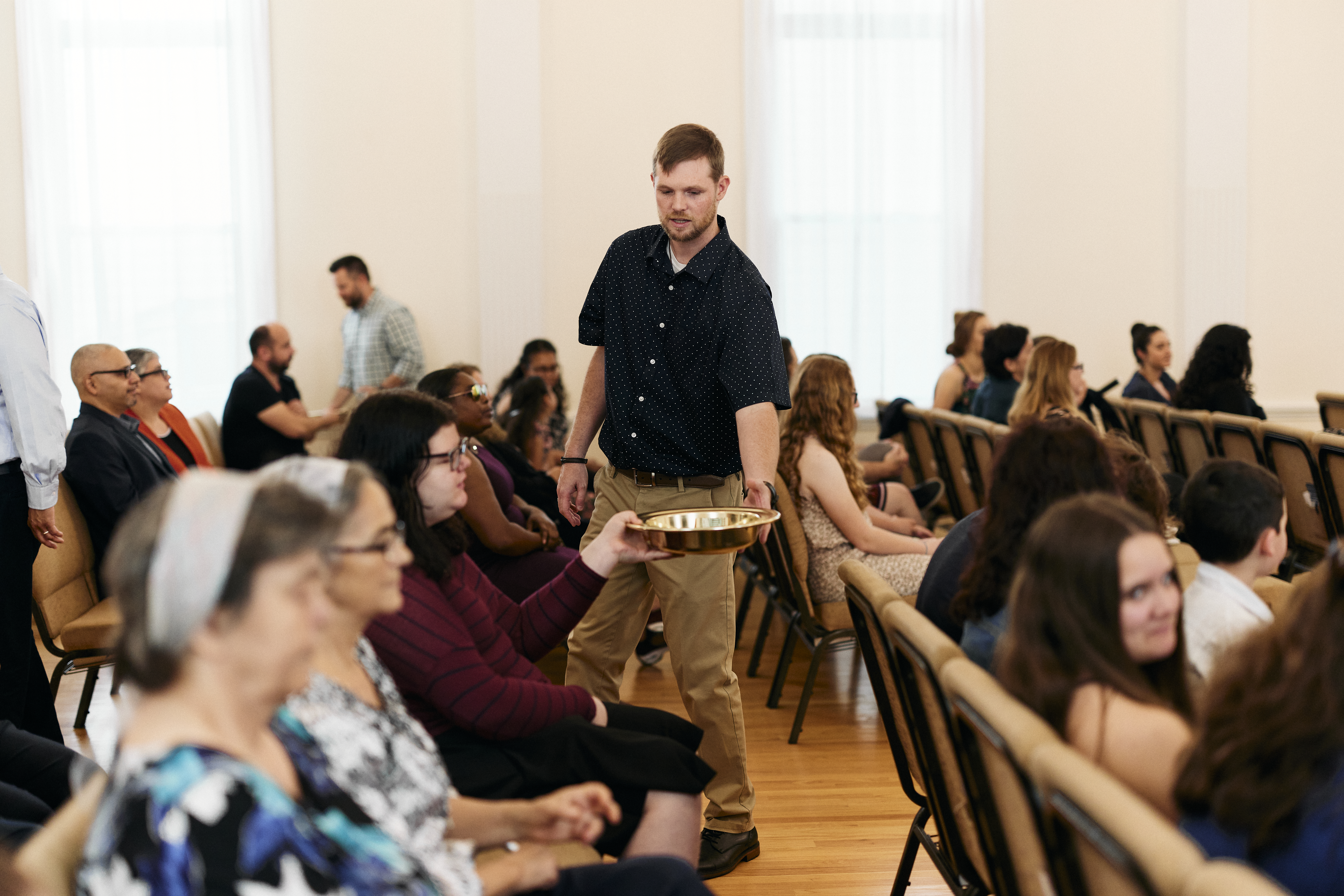
In the 18 months following the church’s re-opening after COVID-19, Maranatha grew from 29 members to 51, with 60 in attendance regularly (not counting children).
Most importantly, God is changing lives through the church. Lisa Spadola, a Romanian married to a non-Romanian, began attending the church before the restart. But with the heavy focus on Romanian culture, she felt disconnected. She returned after the replant, and it has been instrumental to her spiritual growth.
“My life has changed completely in the sense that I know my purpose in this world,” Spadola said. “I know…I have Jesus in my life. … And I have the light in me. I’m happier. I feel more at peace, and my friends and family see that in me.”
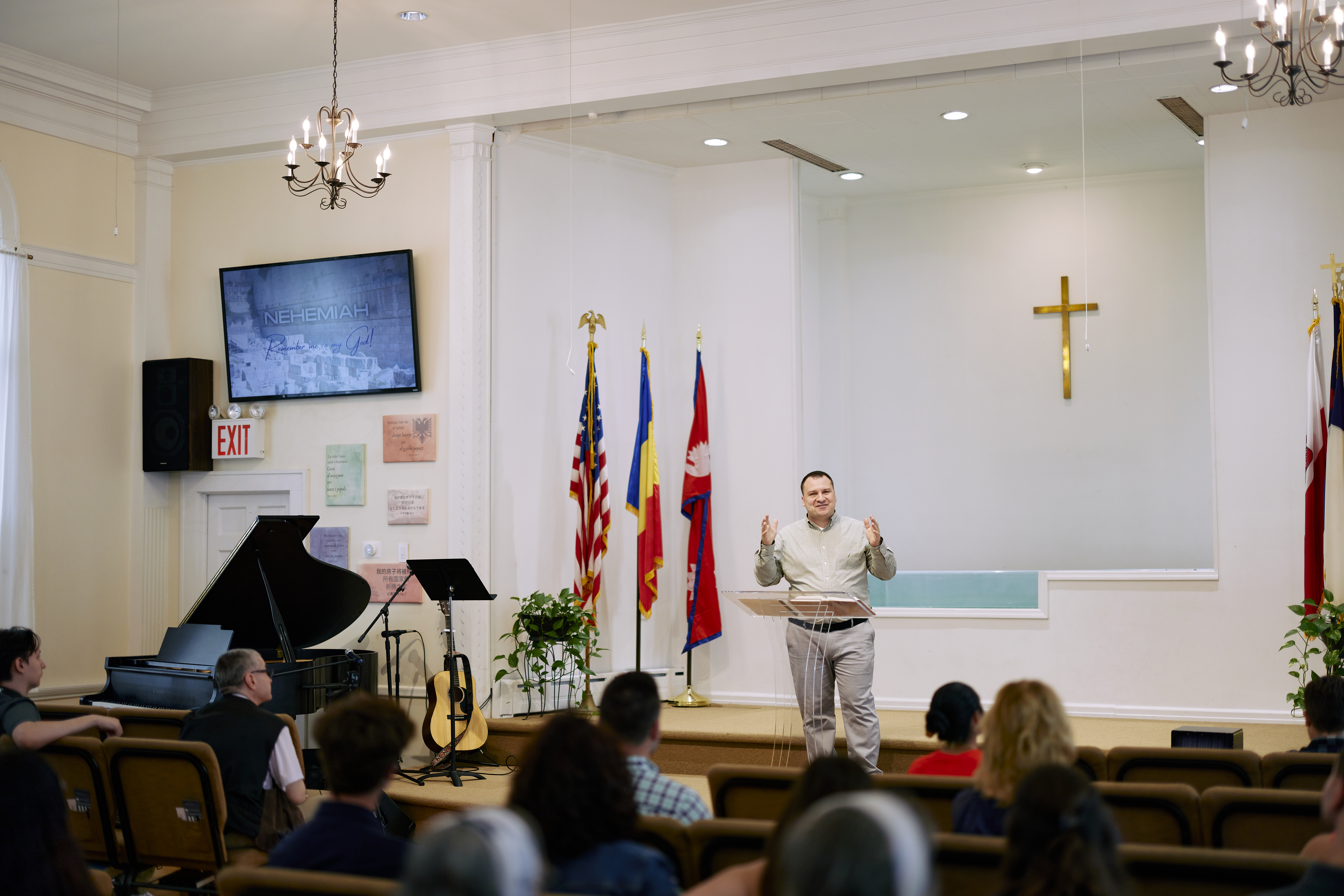
As Grozea works to continue the replant process at Maranatha, he says his partnership with Southern Baptists has been critical. The church is working with NAMB to open a residency program where church planters can spend a year with the church as they’re preparing to plant.
“Ministry can be a lonely place,” Grozea said. “Church planting can get even tougher. Knowing that there is a community out there praying, lifting up their hands for me, as I’m going out and serving, gives me so much peace and strength. It gives me the knowledge that yes, as I’m going through hardships, there are people battling this along with me. I’m not alone.”
Grozea acknowledges that pastoring a church with so much diversity can be a challenge, but watching God unify the church around the gospel on a weekly basis has been exciting.
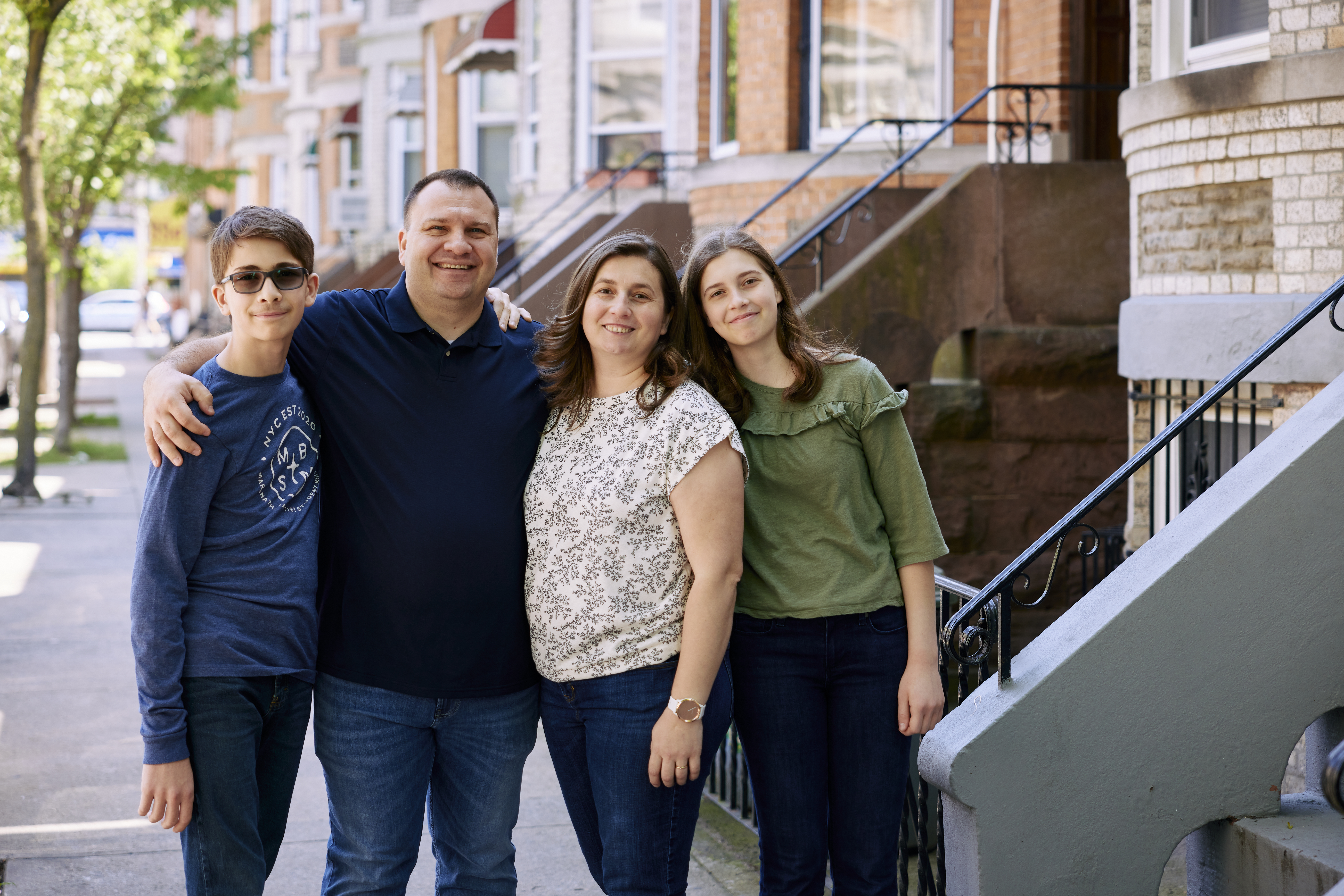
“We live in a day and age where people are separated by their races, ethnicities, and so many other factors,” Grozea said. “This is one of the only communities that I know of where people come together, and they’re just wanting Christ. That’s a unifying factor, and we love to serve Christ.”
The Annie Armstrong Easter Offering® provides half of NAMB’s annual budget, and 100 percent of the proceeds go to the field. The offering is used on the field for training, support and care for missionaries, like Emanuel Grozea, and for evangelism resources.
Published March 9, 2023
